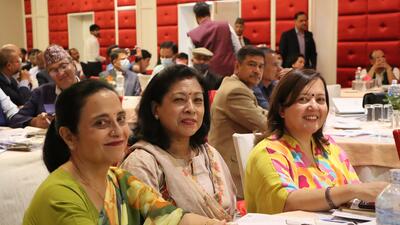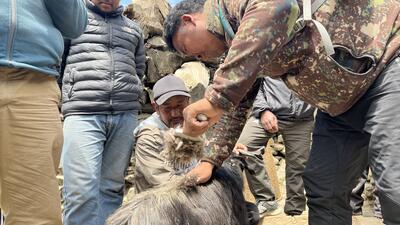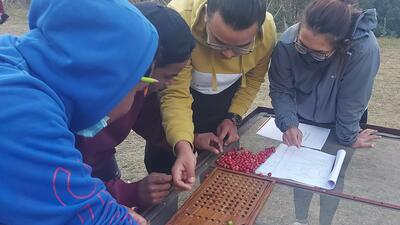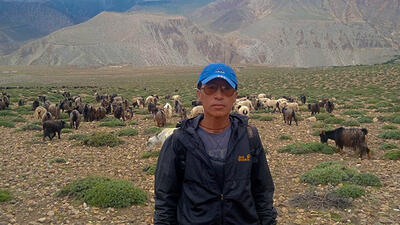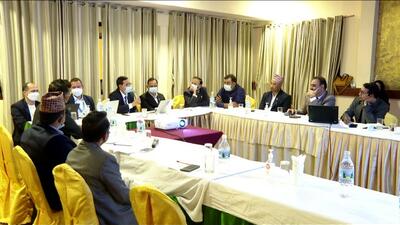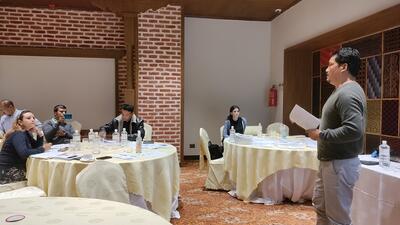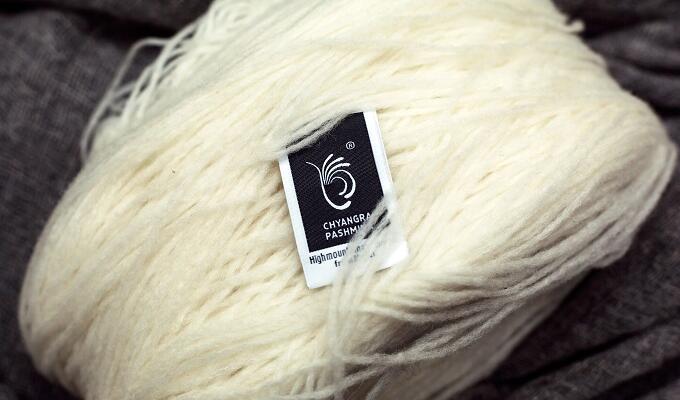

Linking Chyangra Pashmina fibre from the mountains in Nepal to the market
Participants representing the government, business and sector associations, as well as development partners recently gathered for their first virtual multi-stakeholder consultations to kick-start the design of the Pashmina export strategy and discuss the challenges to strengthen backward linkages in Nepal.
Stakeholders validated the strategy design process and reviewed the preliminary results of the surveys that the International Trade Centre (ITC) conducted with Chyangra farmers in June and July. The consultation also sought advice on identifying best ways to improve the backward linkages and domestic market supply of Pashmina fibre, creating 100% Chyangra products that can be traced back to the mountains of Nepal.
Furthermore, key issues such as producers' capabilities, the effectiveness of public and private support services and access to finance outline a way forward for improving export prospects, identifying the main challenges the sector is facing during the present uncertainties and the actions needed for the sector to leverage opportunities in the global markets.
Durga Prasad Bhusal, Under Secretary of the Ministry of Industry, Commerce and Supplies said: 'The project is an effort in the right direction and comes at an appropriate time, especially since Chyangra Pashmina has been identified as a priority product in the Nepal Trade Integration Strategy, and the government is geared towards improving the sector.'
Mr. Bhusal also emphasized the need for the strategy to be practical to fulfill the requirements of the various stakeholders. Olivier Marty, Senior Trade Strategy Adviser at ITC presented the sector strategy objectives and familiarized the future members of the core team with their role going forward in the sector design process.
The development of the sector strategy is part of the EU-Nepal Trade and Investment Programme, a four-year programme funded by the European Union and implemented by the International Trade Centre.
In addition to its work in the pashmina sector, ITC is providing technical support to develop backward linkages in the Chyangra Pashmina Value Chain.
About the EU-Nepal Trade and Investment Programme
The EU-Nepal Trade and Investment Programme is a four-year programme funded by the European Union (EU), to assist the Government of Nepal to achieve sustainable and inclusive economic growth and poverty reduction by increasing trade and participation in regional and global value-chains.
Using a consultative approach, the Trade and Export Promotion Centre of the Ministry of Industry, Commerce and Supplies along with the Ministry of Agriculture and Livestock Development are leading the work on the Pashmina sector strategy with the support of the International Trade Centre.





